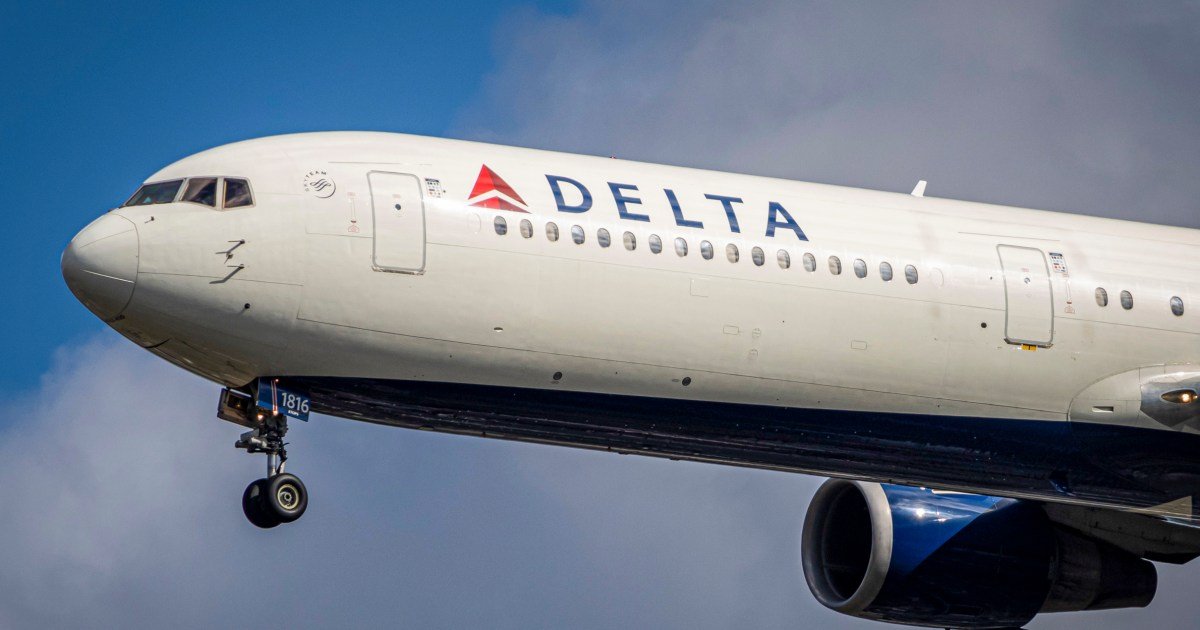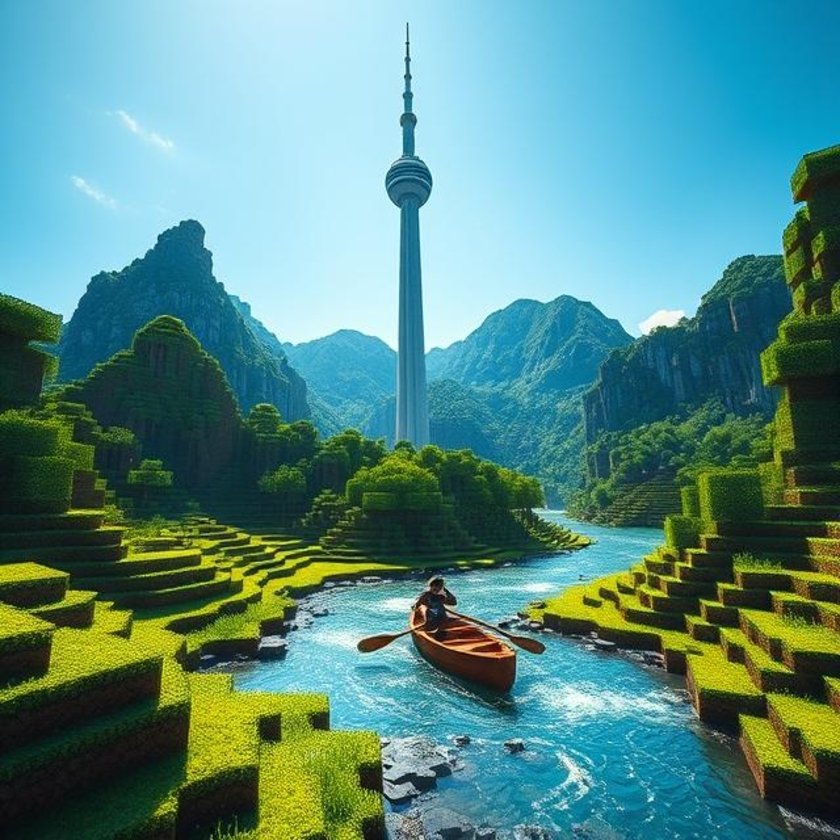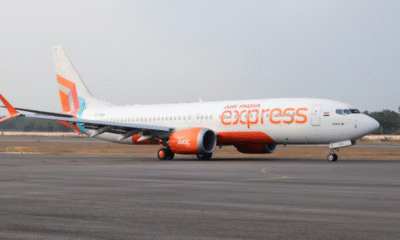AI in Travel
AI tech and summer travel – fox10tv.com

AI tech and summer travel fox10tv.com
Source link
AI in Travel
India Emerges as a Leader in AI Adoption and Travel Enhancement, ETTravelWorld

Indian travellers are embracing AI like never before. According to Booking.com’s Global AI Sentiment Report, Indian consumers are among the most positive globally towards artificial intelligence, with 99 per cent expressing excitement, 98 per cent open to using AI in travel, and 96 per cent familiar with the technology.
However, while enthusiasm runs high, trust in full AI autonomy lags. Only 16 per cent of Indian travellers fully trust AI, and just 12 per cent are comfortable with AI making independent travel decisions without human input. The majority see AI as a powerful assistant—not a replacement—for human judgment.
“Generative AI represents one of the most significant technological shifts of our era,” said Santosh Kumar, Regional Manager, South Asia, at Booking.com. “In India, people are not just curious — they’re actively using AI to shape better travel experiences. The opportunity is enormous, but so is our responsibility to guide travellers with trust and transparency.”
Key India-Specific Insights from the Report:
Top travel AI uses: researching destinations (53 per cent ), finding local experiences (44 per cent ), and getting restaurant recommendations (42 per cent )
– In-trip AI use: translation (55 per cent ), local suggestions (52 per cent ), navigating transport (41 per cent )
– Post-trip AI use: photo editing (51 per cent )
– 45 per cent trust AI assistants more than travel bloggers (36 per cent ) or social media influencers (31 per cent )
– 87 per cent already use AI for some aspect of travel
– 82 per cent value AI tools that reduce crowding and overtourism
Despite this uptake, 92 per cent of Indian respondents still express at least one concern around AI, particularly its impersonal nature and the need for verification: 32 per cent always fact-check AI results, and 38 per cent find it lacks the human touch.
The report categorizes Indian AI sentiment into groups:
– 46 per cent – AI Enthusiasts
-28 per cent – AI Advocates
– 10 per cent – AI Detractors
– 5 per cent – AI Cautious
– 4 per cent – AI Skeptics
Globally, APAC ranks among the most AI-friendly regions, while North America and Europe exhibit more skepticism and demand for transparency.
Bottom Line:
India is leading the charge into AI-powered travel, driven by curiosity, convenience, and a willingness to experiment—but travellers still want human validation. Booking.com is building on this momentum to make AI a more transparent, empowering tool for the next generation of global explorers.
AI in Travel
Delta Air Lines assures U.S. lawmakers it will not personalize fares using AI

WASHINGTON – Delta Air Lines said on Friday it will not use artificial intelligence to set personalized ticket prices for passengers after facing sharp criticism from U.S. lawmakers and broad public concern.
Last week, Democratic Senators Ruben Gallego, Mark Warner and Richard Blumenthal said they believed the Atlanta-based airline would use AI to set individual prices, which would “likely mean fare price increases up to each individual consumer’s personal ‘pain point.’”
Delta said it has not used AI to set personalized prices but previously said it plans to deploy AI-based revenue management technology across 20% of its domestic network by the end of 2025 in partnership with Fetcherr, an AI pricing company.
“There is no fare product Delta has ever used, is testing or plans to use that targets customers with individualized prices based on personal data,” Delta told the senators in a letter on Friday, seen by Reuters. “Our ticket pricing never takes into account personal data.”
Senators praised Delta’s commitment not to use AI for personal pricing but expressed many questions and want more details about what data Delta is collecting to set prices.
“Delta is telling their investors one thing, and then turning around and telling the public another,” Gallego said. “If Delta is in fact using aggregated instead of individualized data, that is welcome news.”
Delta declined comment on Gallego’s statement.
The senators cited a comment in December by Delta President Glen Hauenstein that the carrier’s AI price-setting technology is capable of setting fares based on a prediction of “the amount people are willing to pay for the premium products related to the base fares.”
Last week, American Airlines CEO Robert Isom said using AI to set ticket prices could hurt consumer trust.
“This is not about bait and switch. This is not about tricking,” Isom said on an earnings call, adding “talk about using AI in that way, I don’t think it’s appropriate. And certainly from American, it’s not something we will do.”
Democratic lawmakers Greg Casar and Rashida Tlaib last week introduced legislation to bar companies from using AI to set prices or wages based on Americans’ personal data and would specifically ban airlines raising individual prices after seeing a search for a family obituary.
They cited a Federal Trade Commission staff report in January that found “retailers frequently use people’s personal information to set targeted, tailored prices for goods and services — from a person’s location and demographics, down to their mouse movements on a webpage.”
The FTC cited a hypothetical example of a consumer profiled as a new parent who could intentionally be shown higher-priced baby thermometers and collect behavioral details to forecast a customer’s state of mind.
Delta said airlines have used dynamic pricing for more than three decades, in which pricing fluctuates based on a variety of factors like overall customer demand, fuel prices and competition, but not a specific consumer’s personal information.
“Given the tens of millions of fares and hundreds of thousands of routes for sale at any given time, the use of new technology like AI promises to streamline the process by which we analyze existing data and the speed and scale at which we can respond to changing market dynamics,” Delta’s letter said.
AI in Travel
Tourism New Zealand Pioneers Future of Travel with AI-Powered Minecraft Destination – What You Need to Know

Sunday, August 3, 2025
Tourism New Zealand has taken a bold step into the future of travel by combining artificial intelligence (AI) and gaming to transform how people plan their trips. In a groundbreaking initiative, New Zealand has become the world’s first fully playable country within Minecraft, marking a major shift in destination marketing. This AI-powered Minecraft destination merges the growing popularity of gaming with travel, offering a digital experience that inspires real-world visits.
AI-Powered Trip Planner
In partnership with GuideGeek, an AI-powered travel assistant, Tourism New Zealand has integrated an intuitive trip planner directly into its website, newzealand.com. This AI assistant is designed to break down the common barriers to travel planning, providing answers to common questions such as “How long is the flight to New Zealand?” or “What are the best activities to do in each season?” It offers personalized suggestions based on user preferences, helping travelers plan their journeys with ease.
The AI platform is driven by a massive database of tourism data from regional organizations and local operators, ensuring that every response is accurate and tailored. This technology not only simplifies the planning process but also encourages deeper interaction with the destination, moving beyond simple queries to a more personalized experience. By leveraging GuideGeek, Tourism New Zealand offers a travel planning tool that is intuitive, data-driven and highly effective.
A Virtual New Zealand in Minecraft
A core component of this campaign is the launch of Aotearoa New Zealand DLC within Minecraft. In collaboration with Mojang Studios and other local partners, Tourism New Zealand has transformed the country’s iconic landscapes into a fully interactive, digital version within the game. Landmarks such as the Waitomo Caves and Abel Tasman National Park can now be explored virtually by players worldwide.
This initiative was launched alongside the release of A Minecraft Movie, amplifying the excitement and engagement around the digital New Zealand. Players can virtually paddle a traditional Māori waka or explore the famous glowworm caves, experiencing New Zealand’s natural wonders and culture in a way that was never possible before. This immersive virtual experience is designed to captivate users, sparking curiosity about the real-world destinations that these locations represent.
Driving Real-World Travel
The integration of AI and Minecraft has proven to be a successful formula in engaging potential travelers. Since its launch, the AI trip planner has been used by over 200,000 unique visitors, with those interacting with the platform showing a 600% higher engagement rate compared to average users. This indicates a growing interest in using AI tools to enhance travel planning.
The Minecraft integration has also brought significant attention to New Zealand, with over 50,000 active users continuing to explore the digital destination. This engagement not only strengthens the appeal of New Zealand as a travel destination but also demonstrates the effectiveness of blending gaming with tourism marketing.
Looking to the Future of Travel
Tourism New Zealand is setting the standard for the future of travel. This AI-powered Minecraft experience demonstrates how gaming and artificial intelligence can be used creatively to attract and engage travelers. By leveraging these technologies, New Zealand is not only offering a unique way for potential visitors to explore the country virtually, but also inspiring them to experience it in person.
As the travel industry continues to evolve, the use of AI and gaming is likely to become an integral part of tourism marketing strategies worldwide. Tourism New Zealand’s initiative showcases the potential for innovation in the travel industry, positioning the country as a leader in the future of travel.
-

 Brand Stories2 weeks ago
Brand Stories2 weeks agoBloom Hotels: A Modern Vision of Hospitality Redefining Travel
-

 Brand Stories1 week ago
Brand Stories1 week agoCheQin.ai sets a new standard for hotel booking with its AI capabilities: empowering travellers to bargain, choose the best, and book with clarity.
-

 Destinations & Things To Do2 weeks ago
Destinations & Things To Do2 weeks agoUntouched Destinations: Stunning Hidden Gems You Must Visit
-

 Destinations & Things To Do1 week ago
Destinations & Things To Do1 week agoThis Hidden Beach in India Glows at Night-But Only in One Secret Season
-

 AI in Travel2 weeks ago
AI in Travel2 weeks agoAI Travel Revolution: Must-Have Guide to the Best Experience
-

 Brand Stories4 weeks ago
Brand Stories4 weeks agoVoice AI Startup ElevenLabs Plans to Add Hubs Around the World
-

 Brand Stories3 weeks ago
Brand Stories3 weeks agoHow Elon Musk’s rogue Grok chatbot became a cautionary AI tale
-

 Asia Travel Pulse4 weeks ago
Asia Travel Pulse4 weeks agoLooking For Adventure In Asia? Here Are 7 Epic Destinations You Need To Experience At Least Once – Zee News
-

 AI in Travel4 weeks ago
AI in Travel4 weeks ago‘Will AI take my job?’ A trip to a Beijing fortune-telling bar to see what lies ahead | China
-

 Brand Stories4 weeks ago
Brand Stories4 weeks agoChatGPT — the last of the great romantics













You must be logged in to post a comment Login